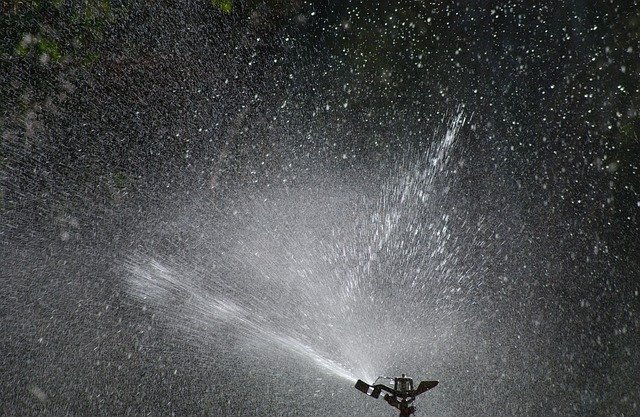Why are automatic filters essential for irrigation systems and micro-irrigation?

Why are automatic filters essential for irrigation systems and micro-irrigation?
Irrigation and micro-irrigation systems require special care and, above all, long life to pay for themselves. They contain many fragile parts that are easy to clog. This is why the use of filtration solutions is essential to rid the water in these installations of various particles. Hectron has developed a number of filtration products that can do this job automatically. These are often cost-effective solutions that require little or no maintenance and are easy to install in various configurations.
Why filter water in irrigation and micro-irrigation systems?
Irrigation and micro-irrigation systems are not only expensive systems, but they also need to be able to operate almost all the time (or on demand) and without human intervention if possible.
In addition, the difficulty of accessing certain components buried in the ground makes it very expensive to carry out any repairs or maintenance. In addition, it is often difficult to determine, on large surface installations, which point or equipment requires intervention.
Filtration is a solution that ensures that installations are not polluted by particles that can clog up certain equipment and prevent it from functioning properly.
What equipment should be protected?
On a watering or micro-irrigation installation, the essential elements to protect are the solenoid valves, the drippers or the micro-sprinklers that are found in large quantities. Indeed, these elements can very quickly become less efficient, or even clogged and no longer deliver water if dirty particles are stored in them. Moreover, their small size makes them particularly vulnerable.
Similarly, the water forge should also be protected at the top, since good filtration at this level should preserve your watering installation. The water in circulation will be less polluted.
Which Hectron products are recommended for the filtration of irrigation and micro-irrigation systems?
There are three types of products that can be used for this type of application: AG automatic filters, Prago automatic filters and HN hydrocyclones.
AG automatic filters
These automatic filters are known for their quality, but also for the many advantages they provide:
- No human intervention thanks to their fully automated operation
- No consumables are required
- Low filtration thresholds that allow the removal of small particles
Thus, the AG range allows for filtration thresholds that start at 0.5-1 microns and reach 500 microns.
In addition, the filter is only started when a pressure difference between upstream and downstream is detected by a pressure switch. Cleaning is therefore never superfluous and helps to limit water consumption.
The models in this range are all manufactured with a stainless steel casing and can withstand a maximum pressure of 5 bar.
However, the maximum flow rate varies according to the model:
- AG 100: 8 m3/h.
- AG 200: 45 m3/h.
- AG 300: 120 m3/h.
- AG 400: 340 m3/h.
Similarly, the inlets and outlets of the different models are also different:
AG 100: 1” female thread
AG 200: 2″ female thread, 3″ male thread and DN80 flanges
AG 300: 3″ male thread and flanges of DN100 and DN150
AG 400: DN100, DN150, DN200 and DN250 flanges
Prago automatic filters
Hectron has specifically designed an automatic filter called Prago for drilling applications. It is an economical solution for the filtration of borehole water, which can then be used for watering or irrigation purposes.
This filter offers the possibility of operating at various filtration levels: 100, 200 or 300 microns. It is manufactured with a stainless steel casing and PE parts and can admit a maximum pressure of 6 bars. The maximum flow rate is 10 m3/h.
The electrical supply is simply 230 V at 50 Hz and the device has a total power of 50 W. Finally, its empty weight is 6 kilograms and its inlets and outlets are tapped at 1”¼.
HN hydrocyclones
A hydrocyclone is a piece of equipment that has the ability to separate particles that are heavier than water by centrifugal force. It is different from a conventional filter, as no physical barrier is used to perform the filtration. The great advantage of a hydrocyclone is that it is used upstream of a filter to remove large particles and thus protect the filter.
A hydrocyclone actually uses the incoming fluid to create both a centrifugal force and a flow pattern. When the suspended particles have a sufficiently different density to the liquid medium then separation can take place.
Through a cyclonic flow pattern a vortex develops. This cannot escape through the narrower axial bottom outlet. Part of the liquid must then reverse its path and flow to an upper axial outlet. And the suspended matter accumulates downwards and eventually collects in a tank.
The Hectron hydrocyclone models that are made of stainless steel are the HN models. They offer long durability and are not subject to the risk of oxidation.
They are either cylindrical or conical in shape depending on the size of the model chosen. They have either a 1″ or 2″ threaded inlet and outlet and can handle a maximum flow rate of 25 m3/h and a pressure of up to 10 bar. The filtration offered by these hydrocyclones removes approximately 80% of suspended solids larger than 100 µm.
The HN models are conical in shape. They have the same general characteristics, but differ in size. They are available with 3″ threaded inlets and outlets or with DN 100 flanges.

